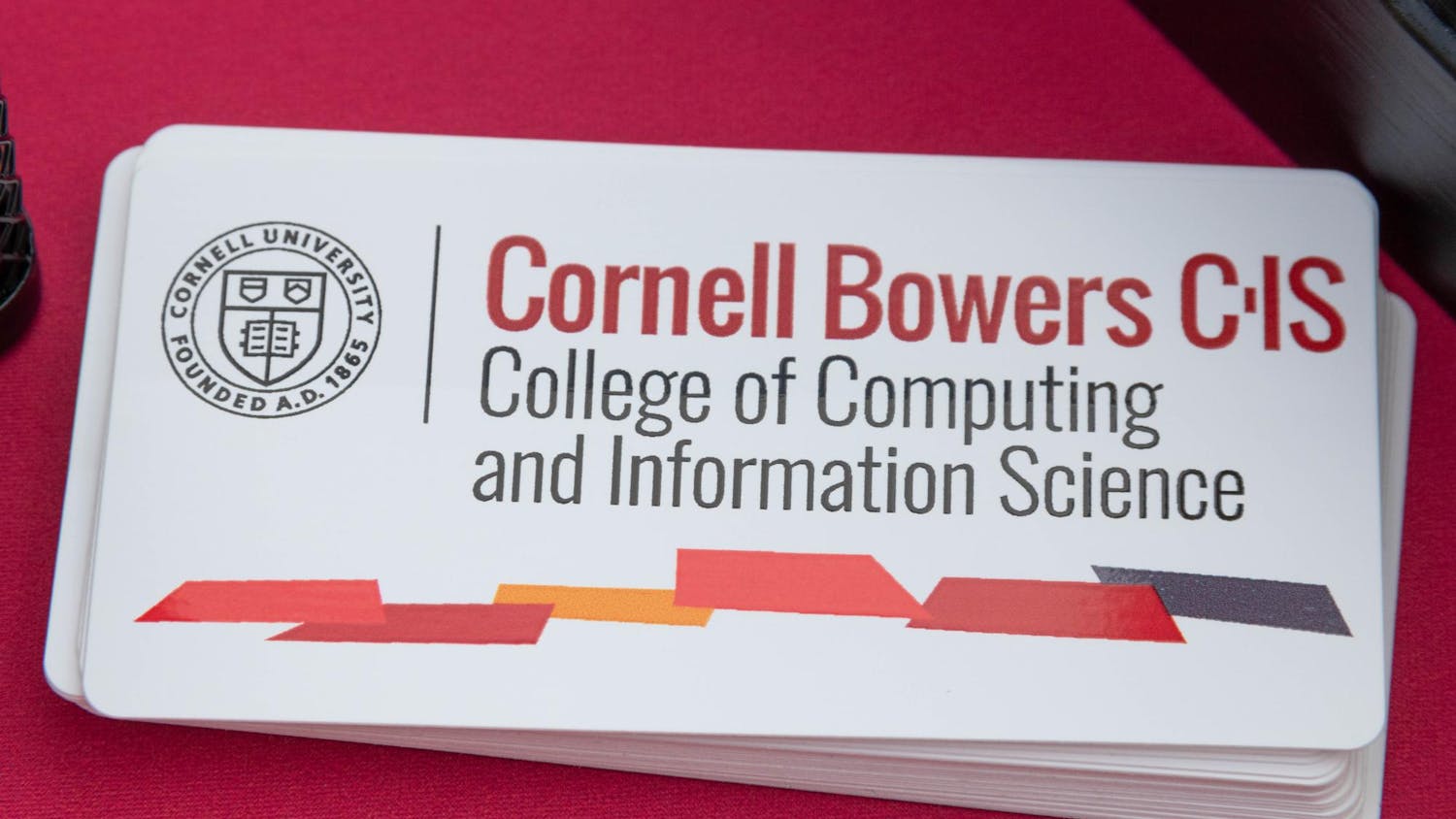In September, Cornell startup companies Halomine and Inso Biosciences were awarded the New York State Biodefense Commercialization Fund to prevent future outbreaks of disease, such as COVID-19.
As New York was hit first and hardest by the COVID-19 pandemic in the United States, the New York State government created the biodefense program to aid the development and commercialization of technology used to combat transmission and threats of disease.
CEO Ted Eveleth and co-founders CSO Mingyu Qiao and Prof. Minglin Ma, biological and environmental engineering, founded Halomine in 2018, which received $2 million from the fund.
Their mission is to provide solutions against infectious bacteria and viruses for hospitals, mass transit systems, schools, etc. They do this by producing antimicrobial coating technology that extends the life of chlorine-based disinfectants to keep surfaces germ-free.
Halomine’s products are built on the chemistry of a molecule, known as N-halomine, to maintain antimicrobial efficacy. N-halomine stabilizes chlorine in disinfectants by bonding, or forming an attachment, with chlorine. In the presence of bacteria or viruses, the chlorine will detach from N-halomine to kill them. Afterward, the chlorine returns and reattaches to N-halomine until another pathogen appears.
Additionally, Halomine uses the chemistry of a molecule known as a Zwitterion molecule to maintain antifouling efficacy, which prevents the attachment of pathogens. The Zwitterion molecule interacts with water to form a barrier, making it difficult for pathogens to attach to surfaces with coats containing the Zwitterion molecule.
HaloFilm, Halomine’s nontoxic spray, prolongs the efficacy of chlorine-based disinfectants by leaving a transparent, protective film over the disinfectants. Typically, chlorine-based disinfectants last from 10-15 minutes to a couple of days in killing pathogens. When applied once, Halofilm can extend the disinfectant’s effectiveness to a month. The product is currently pending regulatory approval and is almost ready for commercialization.
Halomine will mainly use its funding to develop HaloAdd, an antimicrobial plastics additive coating for plastic surfaces such as food processing tools and medical equipment. The product protects these surfaces from pathogens similar to HaloFilm. HaloAdd has been proven effective in the lab, but Halomine hopes to optimize research on the product.
Another Cornell startup Inso Biosciences was also awarded the NYS biodefense fund. CEO Dr. Harvey Tian and co-founders CSO Dr. Adam Bisogni and Dr. Harold Craighead, scientific advisor and Cornell professor emeritus, founded Inso Biosciences in 2020, which received $955,000 from the fund.
The company focuses on developing tools for sample preparation, which are typically labor-intensive, slow, and prone to error. Using microfluidics, the science of fluid behavior and manipulation of fluids, Inso Biosciences aims to develop its technology for more accessible, precise and automotive genomics.
“Essentially, what we're doing is taking a lot of complex biological protocols and condensing them down to an easy to use system,” Tian said.
Their products currently include a chip cartridge to place biological samples inside and a fluid control platform. The chip cartridge contains a micropillar array, various sets of miniature pillars decreasing in size, that will be used to process the samples.
The procedure, as Tian described, begins with a solubilized sample, typically consisting of blood or a liquid containing human cells. The sample is loaded into the chip cartridge, which is placed in the fluid control platform.
The platform controls fluids as it operates, allowing the sample to be sent through the micropillar array. The sample is then sorted by size as larger particles are caught by the micropillars due to their size while smaller particles pass through them.
Tian discusses that Inso Biosciences plans to use the biodefense funding for resources including cost, people, personnel, etc. He also hopes to optimize the design and operation of both the chip cartridge and the fluid control platform.
Tian shares a unique biodefense-related issue that Inso Biosciences hopes to address with this funding: sexual assault cases.
Identifying perpetrators of sexual assault crimes can be difficult because a sample swab typically contains numerous epithelial cells from the victim compared to sperm cells of the perpetrator. However, Inso Biosciences technology can easily sort sperm and epithelial cells due to their sizes, allowing for faster identification and response to sexual assault cases.
Tian explains how Inso Biosciences can address novel issues regarding infectious diseases by quickly filtering human samples with infectious microbes and removing human cells from microbes. Thus, scientists do not need to take the time to grow cultures of these microbes, allowing more efficiency in combating diseases.
“If we can limit the time to respond to a new infectious disease and give a better picture of this infection, we can really help address the ability to contain and control it,” Tian said.











